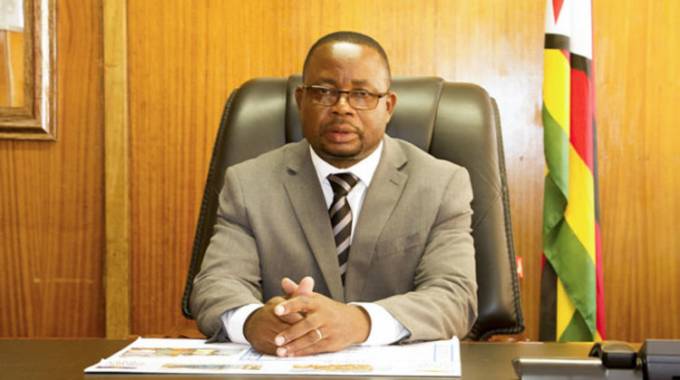Ensure safe workplaces – Govt

Yeukai Tazira Herald Correspondent
There is a need for both formal and informal organisations to ensure that workplaces are safe as the provision of first aid facilities is a legal requirement, a senior Government official has said.
Statistics obtained from the International Labour Organisation (ILO) show that 370 million accidents at workplaces are recorded annually, 2,3 million people die from work-related injuries every year, 6 300 people die every day and 153 people are injured every day globally.
Addressing the media in Harare yesterday, Public Service, Labour and Social Welfare Minister Paul Mavima said Government would continue to strive towards ensuring a safe working environment and minimising life-threatening incidents.
“When you are faced with even life-threatening incidents like drowning, fires, smoke inhalation when you do not have first aid, you could easily lose your life. So first aid is very important not just at workplaces but also in our homes. All such unfortunate incidents call for us to be equipped with basic first aid skills so that we know how to respond to emergencies as they arise.
“While first aid is important for everyone, it is even more important for the workplace and this is why I think organisations such as National Social Security (NSSA)are here today. Our Occupational Safety and Health department at NSSA will be useful in joining hands with ZRCS and can make resources available to all workplaces. We will be happy to put in some resources that will assist the ZRCS to go into the communities to improve safety and also immediate response that first aid can provide,” he said.
Minister Mavima urged NSSA to fulfil its mandate of ensuring compliance with the laws related to first aid training at workplaces.
“Prevention is better than cure. In fact, it is more cost-effective to prevent than respond to accidents so I want to urge our colleagues from NSSA to fulfil its statutory obligation on ensuring compliance with the laws related to mandatory training and equipment of first aiders at workplaces to ensure the working environments are safe,” he said.
He applauded the Zimbabwe Red Cross Society (ZRCS) for the aggressive stance shown through first aid training adding that Government would work hand in glove with them in order to steer the economy towards Vision 2030.
“Let us have a critical mass of people well trained to do first aid and let us have first aid kits everywhere and ZRCS can do that. Government and the private sector will come in to put resources for purposes of making sure that we can save lives with first aid.
“What I want to say to ZRCS is that we want to see you everywhere and know you. We want you to provide the necessary skills to save lives when such incidences happen. It is things like training that ZRCS could give to people that could change the face of this country.
Minister Mavima called on all Zimbabweans to acquire the basic knowledge of first aid skills as emergencies are a daily phenomenon.
Speaking during the same event NSSA principal occupational Safety and Health officer Ms Thembekile Dumbu said organisations needed to minimise work-related injuries.
“People who go to work are at risk of work-related injuries and NSSA we are advocating for zero harm. As much as we administer first aid at the workplace, as an organisation, we are advocating for zero harm where we are saying we do not want to see people getting injured in the workplace.
“We are advocating for zero fatalities, zero injury and zero accidents because we want to be productive,” she said.
Meanwhile, in a speech read on his behalf, ZRCS Secretary General Mr Elias Hwenga said they would continue to fulfil their humanitarian mandate of saving lives.
“We will continue to train first aiders and this means we will be able to save lives. First aid is a humanitarian act vital to support health and resilient communities, it should be accessible to everyone and everywhere without discrimination. In this case, we are talking about the physically and mentally challenged, children, the elderly and everyone else.
“The mining and industrial sectors have a high risk in their areas of operation hence first aid is a key and vital component of their work,” he said.











Comments